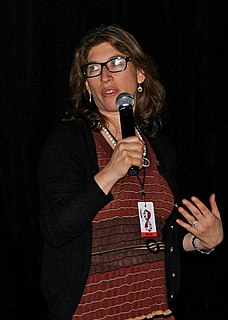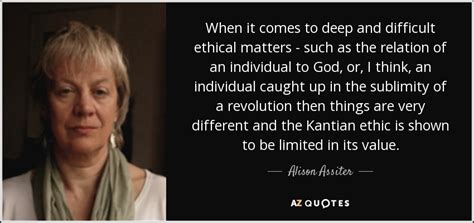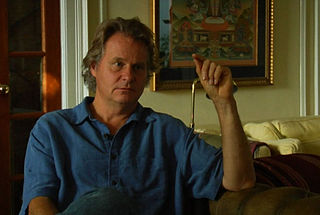A Quote by Sharon Zukin
When new businesses open that are trying to attract people with cultural capital or cultural ambitions, they are often more expensive than traditional neighborhood stores and cafés, they offer different products, and they have a different atmosphere. Longtime residents may feel uncomfortable there. Structurally, as a group of gentrifiers gets bigger, there is less room for longtime residents. When it becomes a pattern and you can see the effects, we call that displacement.
Related Quotes
The family is both a biological and a cultural group. It is biologic in sense that it is the best arrangement for begetting children and protecting them while they are dependent. It is a cultural group because it brings into intimate association persons of different age and sex who renew and reshape the folkways of the society into which they are born. The household serves as a "cultural workshop" for the transmission of old traditions and for the creation of new social values.
These days, the media is defining what cultural capital is, and it's easily learned. If you have money, anything can be bought. We see this in China and Russia with what I call the "Bling Dynasty and New Oligarchy" in Generation Wealth. As people got rich and everybody started buying Louis Vuitton bags, it became clear that to distinguish yourself you had to have more than an expensive bag. People began to want the things that money is not supposed to be able to buy - history, tradition, education, and culture.
New Jersey boasts the highest percentage of passport holders (68%); Delaware (67%), Alaska (65%), Massachusetts (63%), New York (62%), and California (60%) are close behind. At the opposite end of the spectrum, less than one in five residents of Mississippi are passport holders, and just one in four residents of West Virginia, Kentucky, Alabama, and Arkansas.
It's just insane because, as a longtime WWE fan, I still have all of my action figures in storage. Now to have my own, and to see my nephews play with them, to see kids tweet me pictures with them, and to see people are actually going out of their way searching all of these stores trying to find them, it's really cool and humbling.
The beauty of when you watch good television or films is that, yes, you may have a multi-cultural cast but those roles could be anybody - they could be white, they could be black. To show the world that we have more in common than we have different with each other is to me the ultimate goal of all of that. It does help unite in people's mind the thought that people are the same. Yes, there's going to be cultural differences, but for the most part, we are all in the same gang as human beings.
We accept it as normal that people who have never been on the land, who have no history or connection to the country, may legally secure the right to come in and, by the very nature of their enterprises, leave in their wake a cultural and physical landscape utterly transformed and desecrated. What's more, in granting such mining concessions, often initially for trivial sums to speculators from distant cities, companies cobbled together with less history than my dog, the government places no cultural or market value on the land itself.
Seeing the world anew, as if it were new, is as old as writing. It's what all painters are trying to do, to see what's there, to see it in a way that renews it. It becomes more and more urgent as the planet gets worn flat and forest after forest is slain to print the paper for people's impressions to be scrawled down on. It becomes harder and harder to be original, to see things with an innocent eye. Innocence is much tied up with it. As the planet gets progressively less innocent, you need a more innocent eye to see it.


































